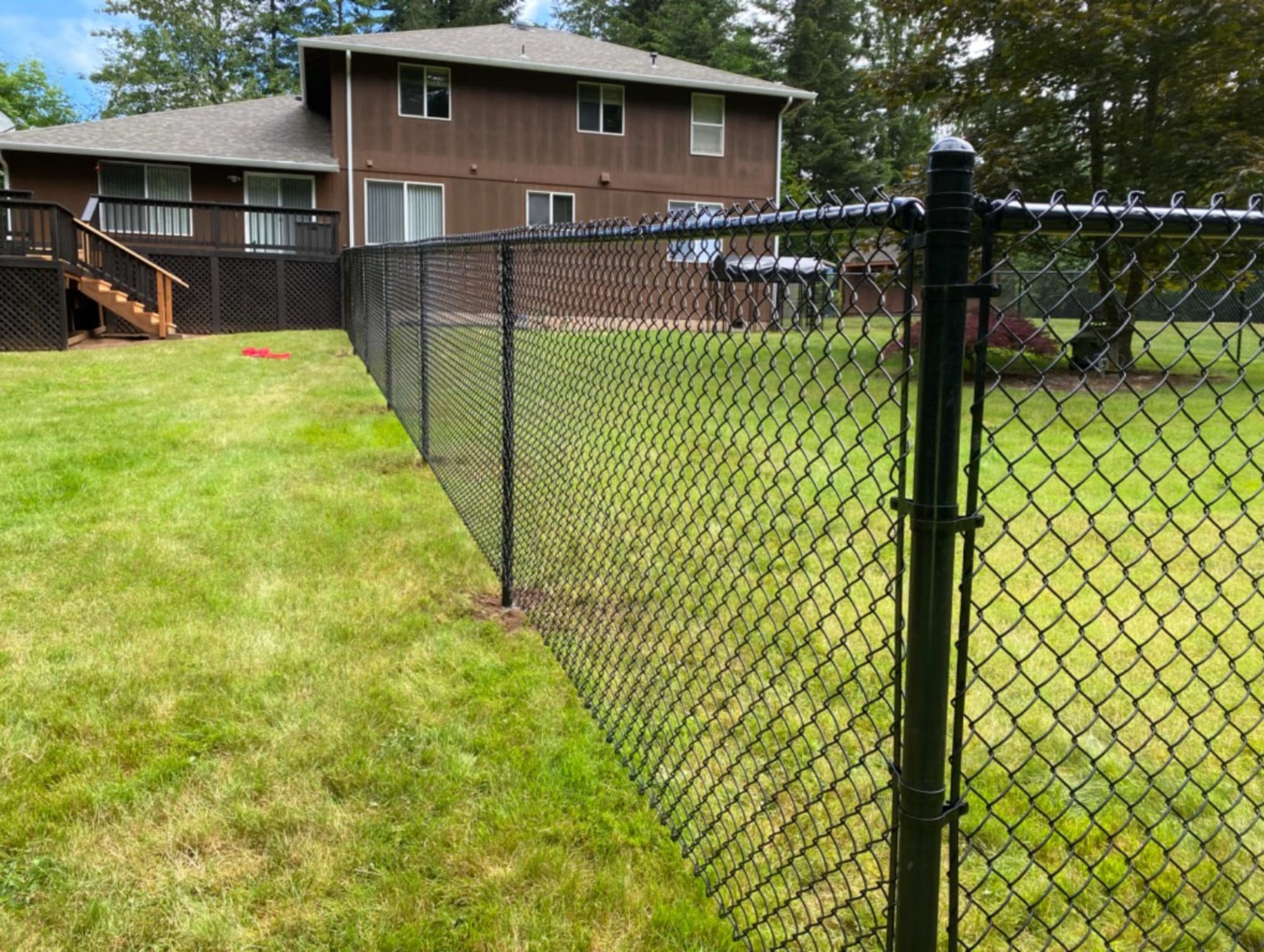All Categories
Featured
Recognizing the authorization requirements in your area is essential if you're taking into consideration mounting a fencing around your property. While constructing a fencing may appear like an easy do it yourself job, several guidelines might regulate its building and construction relying on where you live. Failing to get the appropriate licenses can lead to fines, penalties, and even having to get rid of the fencing altogether. In this overview, we'll break down the various licenses you might need to set up a fencing and exactly how to guarantee your project remains compliant with regional laws.
Why Are Allows Necessary for Fence Setup? Permits are needed to make certain that the fencing you construct adheres to regional structure codes, zoning regulations, and security standards. They make certain that the fence will not block utilities, website traffic flow, or produce dangers for pedestrians.
![]()
Kinds Of Permits You Might Need. Structure Authorization. A structure permit is one of the most typical demand for mounting a fencing. This license makes sure that the framework you construct follow local safety and security codes and laws. If your fencing surpasses a particular elevation (typically around 6 feet), you might require to get a structure permit. The local authorities will typically examine your plans to ensure that your fencing is risk-free and structurally sound.
Zoning Permit. A zoning license makes certain that your fencing complies with these laws. Your fencing could need to be set back a specific distance from sidewalks or residential or commercial property lines.
Homeowners Association (HOA) Approval. If your property becomes part of a property owners organization, you may need authorization before installing a fence. HOAs typically have stringent rules concerning the kind, design, and materials used for fences to maintain an uniform appearance throughout the neighborhood. The HOA might need you to send comprehensive strategies or demand approval before installment. Make certain you adhere to these guidelines to prevent potential penalties or penalties.
Specialty Permits. In many cases, you might need specialty permits based upon the place of your residential or commercial property or the nature of your fencing. If your building is in a flooding area, you might need extra licenses to guarantee that your fencing does not obstruct drainage or water circulation. In a similar way, if you prepare to construct a fence near an ecologically secured location, you might need an unique license to follow environmental laws.
![]()
Utility Easements and Utility Business Authorizations. Some properties have utility easements, which are locations marked for energy pipes, lines, or cables. Before setting up a fence, you should examine if your residential or commercial property has an easement. Building a fence within an easement might disrupt energy maintenance or damages underground lines. You may need authorization from the energy company or regional authorities prior to continuing with the setup.
How to Establish Which Allows You Required. Consult Neighborhood Authorities. The initial step in figuring out the authorizations required is to call your regional structure department or zoning workplace. They can give particular details regarding what permits are needed for your area. Lots of cities have on the internet resources or portals where you can check the demands and even obtain a license online.
Consult an Expert Fencing Professional. A regional fencing professional is commonly aware of the license procedure and local regulations. They can help you browse the requirements and guarantee that your job is certified. Many contractors likewise take care of the permit application process in your place, saving you time and initiative.
Review Your Community's HOA Guidelines. Make sure to evaluate their guidelines before applying for any licenses if you live in a community regulated by an HOA. The HOA might need certain layouts, products, or elevation constraints for fences within the area. Send your plans to them for approval prior to continuing.
![]()
Repercussions of Not Acquiring an Authorization. Installing a fencing without the called for authorizations can cause serious consequences. You might face fines, be purchased to get rid of the fencing, or be called for to redesign the setup to fulfill code requirements. Furthermore, marketing your home can be complicated if the fence does not fulfill neighborhood policies. Prospective purchasers may be reluctant to buy a building with an unpermitted fencing, particularly if it remains in violation of zoning regulations.
Final thought. Before mounting a fencing on your residential or commercial property, make sure you recognize the neighborhood laws and obtain any required authorizations. Structure authorizations, zoning licenses, HOA authorizations, and specialty permits all play a critical function in ensuring that your fence is safe, lawful, and certified.
Why Are Allows Necessary for Fence Setup? Permits are needed to make certain that the fencing you construct adheres to regional structure codes, zoning regulations, and security standards. They make certain that the fence will not block utilities, website traffic flow, or produce dangers for pedestrians.

Kinds Of Permits You Might Need. Structure Authorization. A structure permit is one of the most typical demand for mounting a fencing. This license makes sure that the framework you construct follow local safety and security codes and laws. If your fencing surpasses a particular elevation (typically around 6 feet), you might require to get a structure permit. The local authorities will typically examine your plans to ensure that your fencing is risk-free and structurally sound.
Zoning Permit. A zoning license makes certain that your fencing complies with these laws. Your fencing could need to be set back a specific distance from sidewalks or residential or commercial property lines.
Homeowners Association (HOA) Approval. If your property becomes part of a property owners organization, you may need authorization before installing a fence. HOAs typically have stringent rules concerning the kind, design, and materials used for fences to maintain an uniform appearance throughout the neighborhood. The HOA might need you to send comprehensive strategies or demand approval before installment. Make certain you adhere to these guidelines to prevent potential penalties or penalties.
Specialty Permits. In many cases, you might need specialty permits based upon the place of your residential or commercial property or the nature of your fencing. If your building is in a flooding area, you might need extra licenses to guarantee that your fencing does not obstruct drainage or water circulation. In a similar way, if you prepare to construct a fence near an ecologically secured location, you might need an unique license to follow environmental laws.

Utility Easements and Utility Business Authorizations. Some properties have utility easements, which are locations marked for energy pipes, lines, or cables. Before setting up a fence, you should examine if your residential or commercial property has an easement. Building a fence within an easement might disrupt energy maintenance or damages underground lines. You may need authorization from the energy company or regional authorities prior to continuing with the setup.
How to Establish Which Allows You Required. Consult Neighborhood Authorities. The initial step in figuring out the authorizations required is to call your regional structure department or zoning workplace. They can give particular details regarding what permits are needed for your area. Lots of cities have on the internet resources or portals where you can check the demands and even obtain a license online.
Consult an Expert Fencing Professional. A regional fencing professional is commonly aware of the license procedure and local regulations. They can help you browse the requirements and guarantee that your job is certified. Many contractors likewise take care of the permit application process in your place, saving you time and initiative.
Review Your Community's HOA Guidelines. Make sure to evaluate their guidelines before applying for any licenses if you live in a community regulated by an HOA. The HOA might need certain layouts, products, or elevation constraints for fences within the area. Send your plans to them for approval prior to continuing.

Repercussions of Not Acquiring an Authorization. Installing a fencing without the called for authorizations can cause serious consequences. You might face fines, be purchased to get rid of the fencing, or be called for to redesign the setup to fulfill code requirements. Furthermore, marketing your home can be complicated if the fence does not fulfill neighborhood policies. Prospective purchasers may be reluctant to buy a building with an unpermitted fencing, particularly if it remains in violation of zoning regulations.
Final thought. Before mounting a fencing on your residential or commercial property, make sure you recognize the neighborhood laws and obtain any required authorizations. Structure authorizations, zoning licenses, HOA authorizations, and specialty permits all play a critical function in ensuring that your fence is safe, lawful, and certified.
Latest Posts
Montana Fence-- Your Companion for Yard, Ranch, and Ranch Secure Fencing
Published Apr 21, 25
1 min read
How We Make Floor Covering Easy at Carpet Interiors Floor & Home
Published Apr 21, 25
1 min read
Montclare Auto Repair: Your Reliable Expert for Brake & Engine Repairs
Published Apr 21, 25
2 min read
More
Latest Posts
Montana Fence-- Your Companion for Yard, Ranch, and Ranch Secure Fencing
Published Apr 21, 25
1 min read
How We Make Floor Covering Easy at Carpet Interiors Floor & Home
Published Apr 21, 25
1 min read
Montclare Auto Repair: Your Reliable Expert for Brake & Engine Repairs
Published Apr 21, 25
2 min read